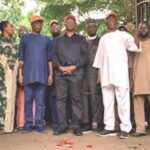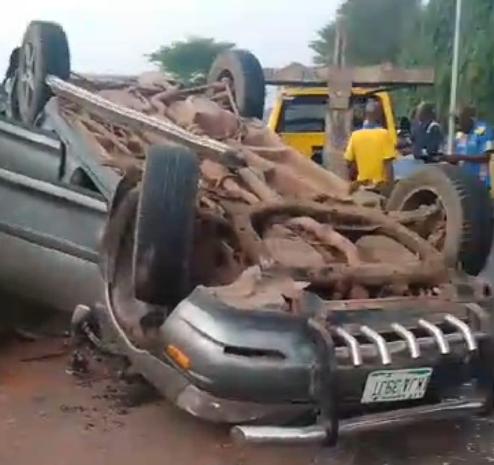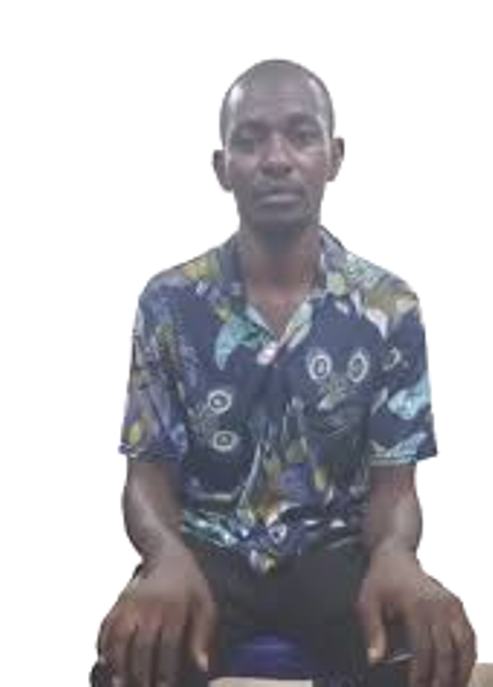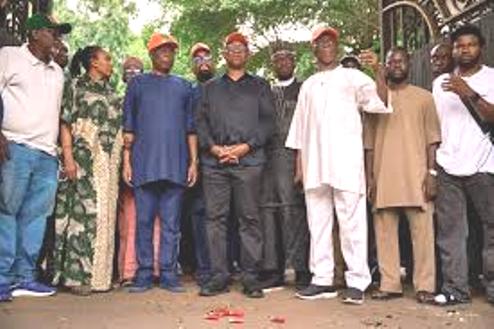
LAGOS DECEMBER 23RD (NEWSRANGERS)-IF anyone still doubted that criminals have overrun parts of Nigeria, the audacious bandits that stormed Government Science Secondary School, Kankara, Katsina State, on December 11 and ferried away over 300 boys erased all such illusion. The kidnapping was spectacular in itself; the fact that the terrorists struck in a town a mere two hours’ drive from Daura, where the President, Major-General Muhammadu Buhari (retd.), was vacationing, demonstrated the brutish and nasty conditions into which the country has sunk, the helplessness of the leadership and rising power of non-state actors.
The Gombe State Governor, Inuwa Yahaya, was right when he said, “Nigeria is facing the worst security challenge in its history.” Yet, as the Nobel laureate, Wole Soyinka, affirmed the Buhari regime “refuses to accept that, as indicated several times over, that the nation is at war.”
Its execution is brazen. The Kankara raid was the third mass kidnapping of students by assorted terrorists. Boko Haram had blazed the trail in 2014 (before Buhari) when it abducted 276 schoolgirls in Chibok, Borno State. It repeated this feat in 2018 when it raided another school in Dapchi, in Yobe State, making away with 110 more teenage girls, later returning all but Leah Sharibu, who had refused to renounce her Christian faith.
The recovery of the 344 Kankara boys a week later, as pointed out by Oby Ezekwesili, a former Minister of Education, offers no cause for self-congratulation. Instead, Buhari should act on the summation of Soyinka that Nigeria is at war with itself. As the boys returned, bandits struck again in Mahuta town, Dandume Local Government Area of Katsina, capturing 80 students of an Islamic school returning from prayers; they were rescued by police and local vigilantes. In Borno, terrorists killed five soldiers and kidnapped 35 civilians, including children and women. This was after butchering over 70 rice farmers, ISIS style, in November in a village near Maiduguri, the Borno State capital. Another gang ambushed the Emir of Kaura Namoda, killed police and civilian guards and took the monarch and several other victims away. Two words describe Nigeria on Buhari’s watch: failed state.
Designated as a form of human association distinguished from other social groups by its purpose, the establishment of order and security; its methods, the laws and their enforcement; its territory, the area of jurisdiction or geographic boundaries; and finally by its sovereignty, a state that cannot defend its members fails a fundamental raison d’être of statehood.
No area is safe: in the North-West, governors confess to have lost control. The Sultan of Sokoto, Sa’ad Abubakar III, lamenting the massacre of 76 persons, said bandits operate in daylight, impose levies on residents and run a loose administration in swathes of territory. From Niger to Plateau to Benue and Kogi states, tracts of North-Central territory have become killing fields. Highways are hunting grounds for roving bands of murderers and kidnappers, the rural areas are ungoverned territory where criminals have carved out mini fiefdoms. The South-West has also become increasingly insecure. Farmers are attacked and killed; kidnappers and robbers prowl the highways and raid homes. In the cities, violent street gangs rob, vandalise and engage in turf wars and reprisal killings.
In the South-South and South-East regions, kidnappers, herdsmen, cult gangs, pipeline vandals, illegal oil bunkerers and political thugs reign supreme. The Nigerian Security Tracker tallied over 40 persons killed, 35 kidnapped amid rapes, arson and random acts of violence in the last week of November. In the first six months of 2020, said Amnesty International, 1,126 persons were killed mostly in the rural areas where “the authorities have left communities at the mercy of rampaging gunmen.” According to Dataphyte, over 70,000 Nigerians have been killed; terrorist insurgency killed 37,500 between 2011 and 2020, displaced 2.5 million and created 244,000 refugees. “Nigeria has one of the world’s worst kidnap-for-ransom with 685 kidnaps reported in the first quarter of 2019 alone. Between June 2011 and March 2020, Nigerians paid about $18.34 million as ransom,” it added. The Global Terrorism Index 2020 ranks Nigeria as the third most terrorism-impacted country with Boko Haram/ISWAP, Fulani militants and bandits listed among the five most deadly terrorist groups. Nigeria is ranked 14th on the 2020 Fragile States Index.
The result has been devastating. Apart from displacement of millions, some of whom are refugees in neighbouring countries, social life has been disrupted, travelling is hazardous, adding to the cost of living and the economy is battered. Already home to the world’s poorest, the World Bank projects that the number of Nigeria’s extreme poor will rise to over 100 million by year end as farmers are evicted from the land; storage and transport are beset by insecurity.
Despite the dire situation, the government has been clueless, rudderless and flat-footed. The President, his security chiefs and regime apologists downplay the existential threat to national survival. The National Assembly responds with nonsensical moves to create a Peace Corps, Hunters and inchoate resolutions. The security services are overwhelmed, short on effective intelligence-gathering, coordination and quick response capability. They appear more preoccupied with regime preservation, silencing peaceful protests and social media than countering the evolving security challenges and the ever-adaptable criminals imposing parallel authority across the country. No one is safe, military convoys and camps are attacked, police stations razed, soldiers and police officers are kidnapped, ransom is paid to recover military officers, police and traditional rulers who have been killed in numbers. Governors, lamely tagged as chief security officers of their states, are paying ransom for kidnapped family, aides and other citizens.
Yet, the 1999 Constitution states among others that the security of lives and property shall be the overriding objective of the state. Built on a fraudulent foundation, the federation is crumbling under the weight of its internal contradictions. Successive Nigerian leaders have failed abysmally in the task of nation building and modernisation. Instead of wedging the plural society together through scientific and empirical strategies, they were preoccupied with pretences and hypocrisies of “One Nigeria.” But more than 100 years after amalgamation and 60 years of independence, Nigeria remains one of the most disunited and fragile countries on earth. Ethnic loyalties are stronger than a sense of common nationhood. The centralised policing system anchored on a unitarist constitution in a natural federation, religiosity, poor governance and the elevation of politics above national interest add to the toxic matrix that continues to tug at political stability and economic growth. Reaching consensus on what to do even when confronted with existential threats has proved intractable.
The buck stops primarily on Buhari’s desk. He should initiate fundamental reforms to save the country from criminal gangs. Instead of continually wailing about their lack of control over security agencies, the state governors should work urgently with NASS, the state legislatures and mobilise popular support to invoke the doctrine of necessity to quickly authorise state policing. As Theophilus Danjuma, a former Defence Minister, reminded all, any further delay in effecting local policing will mean more deaths and possible implosion. This should be followed by immediate amendments to grant states fiscal autonomy and resource control. The nexus between poverty and criminality has been established; unless states are able to operate as autonomous viable economic units that can promote productivity and job creation, instability and criminality will persist.
The Northern state governments especially should understand that education, productive activities and justice are the ramparts of security. Their preoccupation with religion, obsession with power, neglect of education and relegation of economic programmes have created one of the world’s most wretched spaces; the Cato Institute says it accounts for 87 per cent of the country’s poor. All states should in the meantime, strengthen their statewide and local vigilance systems and continue to support federal security agencies. There should be greater international cooperation, especially in the northern states with the large borders and ungoverned territories where governors and federal officials admit that many of the terrorists — jihadists, bandits and Fulani vagrants — are not Nigerians.
Today’s law enforcement and military operations are driven by effective intelligence and cutting edge technology. Terrorists are adaptable, chameleonic, easily blend with the population and engage in an asymmetric war; the state must stay ahead of them through intelligence, ICT and by tracking financial transactions. Much more work needs to be done in addressing the official and unofficial social, political and economic structures that sustain these high levels of lethal violence in Nigeria.
Punch









